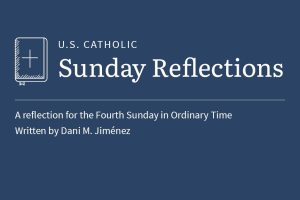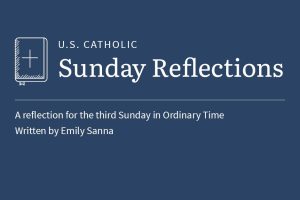There is room in the church for all human beings, no matter which way your sexuality tilts.
Rome is an amazing city. I lived there as a college student years ago. I was just 20 at the time, and it was an eye-opening experience for a kid who'd led a somewhat sheltered life. Though Rome is home to Vatican City, the curia, thousands of priests and nuns, and many more churches than you can easily count, it's also a very secular city with a centuries-old habit of catering to human as well as spiritual hungers and yearnings. The whole parade of human emotions and behaviors coexist in Rome, and it seemed to me as if there was room for everything and everybody. Rome's habit of taking the long view always seemed to convey equal welcome for the redeemed and the unredeemed and, most common, those working on being redeemed, within its walls.
That's why I was surprised to hear the pope's choice of words when speaking about the recent international gay pride festival that so agitated church officials in Rome. I expected him to speak out about the church's current formulation of belief on homosexuality and sexual behavior. That's his right and duty. But I was disappointed when he kicked the issue to the personal level, saying, "In the name of the church of Rome, I can only express bitterness for the offront to the Grand Jubilee of the year 2000 and for the offense to the Christian values of a city so dear to the hearts of Catholics throughout the world."
I think that statement overreaches. Is it the pope's job to decide who can and can't come to Rome? And I think it shows that the church still has some work to do in sticking to principles vs. personalities when dealing with this thorny issue of gays in society and in the church. Could it be that provocateurs dangled bait in front of the pope and he jumped for it?
That's unfortunate because I believe the church has much more to say about sexuality than "Thou shalt not." And we have more to say to a very diverse gay-rights festival than "Your presence offends us." We are a universal faith, which means there is room in the church–not to mention in cosmopolitan Rome–for all human beings, no matter which way your sexuality tilts or how well you're managing to conform yourself to the mind of Christ.
Perhaps I'm missing something, but I don't see where this festival constitutes a worse threat than countless other groups and individuals who have convened over the years in the Eternal City, which has accommodated capitalists, communists, Nazis, mafiosi, arms dealers, and atheists, not to mention Henry Kissinger.
But in this case the pope reportedly lobbied strenuously to have the festival entirely banned from Rome and uttered uncharacteristically harsh words of bitterness. When you see an overreaction–and I believe that's indeed what it was–I think it's worth paying attention. There's usually an important spiritual lesson to be learned. At such a time the last thing one needs to do is to keep repeating the same message over and over hoping the offenders will go away.
No, at times like that it's best to stop and attend to what's going on. And I think that may be precisely what the church needs to do, to declare a moratorium on official pronouncements about the orderedness or disorderedness of homosexual orientation and behavior, and to encourage a more honest and open debate, within the church, of these perplexing issues. I would especially encourage listening to gay and lesbian Catholics, their parents, and those who minister with them (which, I might add, would preclude the attempt to silence such faithful servants as Sister Jeannine Gramick, S.S.N.D. and Father Robert Nugent, S.D.S., who have worked for decades in ministry to gay and lesbian Catholics). The church would show not only humility, but also wisdom in admitting that there may be more to this question of the morality of human sexuality than we now grasp.
Such a moratorium doesn't mean there's nothing to be said. The church can concentrate instead on what's clear. As Catherine Wallace, author of For Fidelity (Knopf, 1998), says, we can unequivocally proclaim the idea that casual sex–whether gay or straight–is wrong because it is self-denigrating and exploitative, and furthermore that we are capable of sustained, honest, authentic sexual and personal commitment. I know that many gay people would applaud that statement and struggle–as do heterosexuals, including celibates-to live up to that moral standard.
But most of all, we ought to stay away from attacking, or even giving the appearance of attacking, a whole group of people who are, like the pope himself, beloved children of God.
This article appeared in the September 2000 issue of U.S. Catholic (Vol. 65, No. 9, page 50).












Add comment